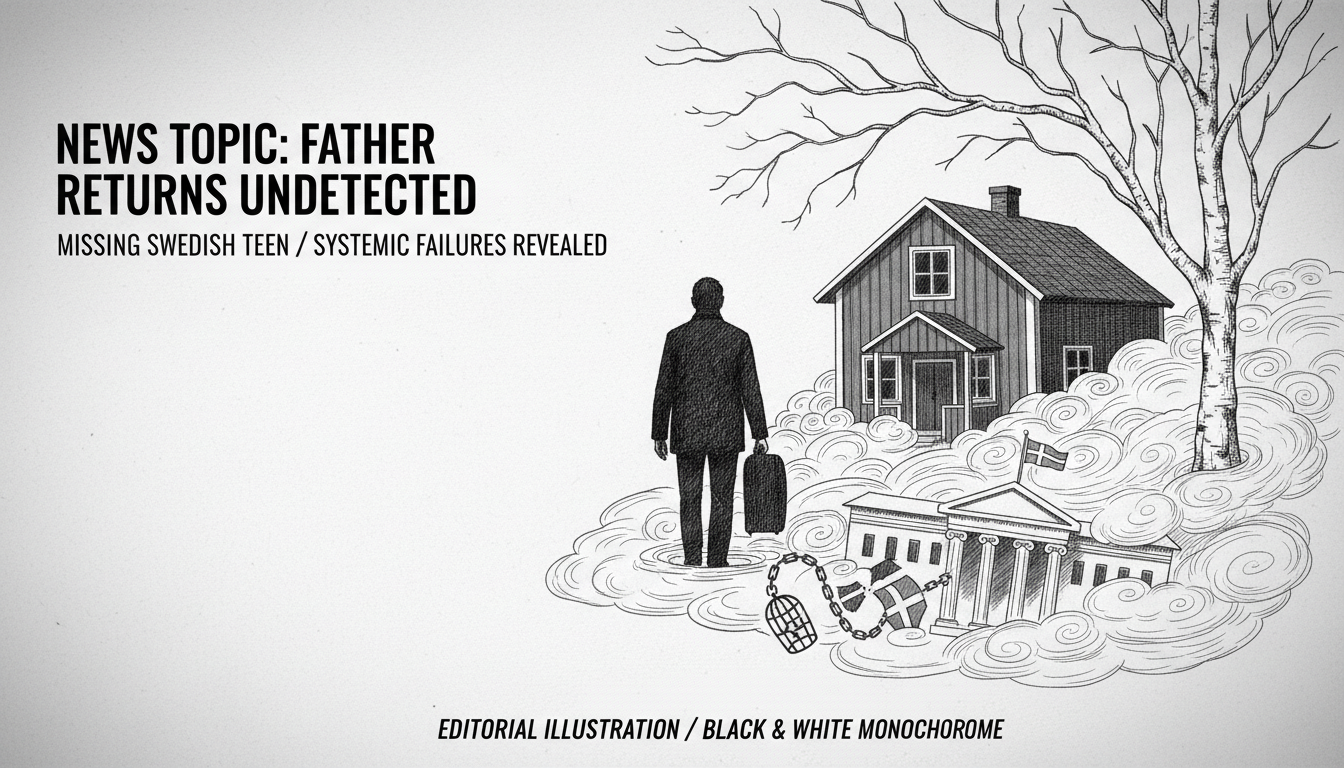The father of a Swedish teenager at risk of forced marriage has returned to Sweden. Local authorities remained unaware of his presence for months. The girl disappeared abroad with her family after a controversial decision to lift her travel ban.
Social services initially placed the girl under compulsory care through LVU, Sweden's Care of Young Persons Act. They documented concerns about physical and psychological abuse. The teenager specifically expressed fears about being forced into marriage or killed. Her parents consistently denied these allegations.
A local social committee chairperson made the unexpected decision to revoke the travel prohibition on New Year's Eve. The family immediately left the country afterward. They have not made contact with Swedish authorities since their departure.
The case reveals concerning gaps in Sweden's child protection systems. How could a man wanted by police participate in court proceedings without detection? The father appeared at Stockholm District Court for civil proceedings in early November. Court documents confirm his physical presence in the courtroom.
Local officials expressed shock at these developments. The vice chairman of Nynäshamn's social committee stated he had no knowledge of the father's return. He described the situation as remarkable and concerning. The municipality has now launched an internal investigation.
Police made numerous attempts to locate the missing family internationally. The force has not confirmed whether the father remains under official investigation. Reporters attempted to contact him at addresses and phone numbers listed in court documents.
The teenager's case has taken several troubling turns. She previously retracted her statements about abuse after leaving her care home. Both social services and administrative courts found her retraction unconvincing. They maintained the travel ban until its sudden revocation.
The social committee chairperson who lifted the ban has temporarily stepped down from her position. The case continues to raise questions about coordination between Sweden's legal and child protection systems. Local authorities must now determine what corrective actions they can implement.
This situation highlights the challenges Sweden faces in protecting vulnerable youth from forced marriages. The country strengthened its laws against forced marriages and honor-based violence in recent years. Yet coordination gaps between social services, police, and courts persist. Similar cases have emerged in other Nordic countries, indicating a regional challenge in preventing international child protection cases from falling through bureaucratic cracks.
The return of the father while remaining undetected suggests systemic communication failures. Sweden's social services typically maintain close coordination with law enforcement in such high-risk cases. The breakdown in this instance raises concerns about whether other vulnerable children might face similar risks.
Municipal authorities face mounting pressure to explain how such a significant oversight occurred. They must also address why a social committee chairperson single-handedly reversed a protective travel ban. The case has implications for Sweden's international obligations regarding child protection and forced marriage prevention.

